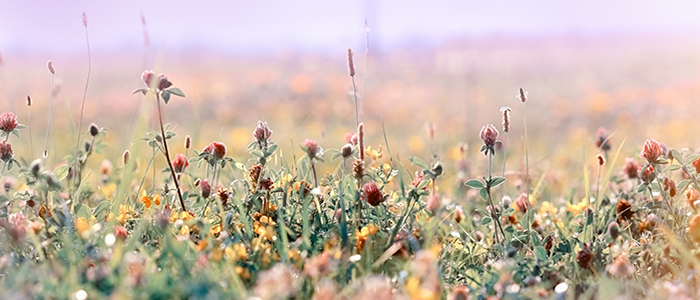[vc_row][vc_column][vc_empty_space][/vc_column][vc_column][vc_single_image image=”56857″ img_size=”full” alignment=”center” style=”vc_box_shadow_3d”][/vc_column][/vc_row][vc_row][vc_column][vc_column_text]
August 3, 2021
[/vc_column_text][vc_row_inner][vc_column_inner][vc_column_text]
As conservationist Rachel Carson once said, “The human race is challenged more than ever before to demonstrate our mastery, not over nature, but of ourselves.” This sentiment is even more important today in a world that is facing a climate crisis. Through the interdisciplinary graduate education program of the Global Change Center (GCC), Interfaces of Global Change (IGC) Fellows are trained to uphold the GCC mission: to advance interdisciplinary scholarship and education to address critical global changes impacting the environment and society. The program empowers students with tools to be successful in collaborative research and to engage the wider community as part of the solution to global environmental challenges. One way in which Fellows have fulfilled this mission is through the creation and development of the Virginia-Science Community Interface coalition.
Started in 2019, The Virginia Scientist-Community Interface (V-SCI) is a coalition of scientists and engineers who are dedicated to getting science into the hands of community members. The inception of V-SCI was based on the fact that, while community-driven advocacy and activism can often be backed up by science, this expertise is not always available for local issues. Thus their mission is to provide scientific expertise for community-driven activism and advocacy in Virginia and the region as an independent and volunteer-led organization. The work often involves cross-checking industry and government documents with scientific literature across multiple disciplines.
[/vc_column_text][/vc_column_inner][/vc_row_inner][vc_row_inner][vc_column_inner][vc_separator style=”shadow”][vc_column_text]
We work at the interface between scientists and nonprofit, grassroots, and community leaders to provide expertise for local and regional advocacy issues.
[/vc_column_text][vc_separator style=”shadow”][/vc_column_inner][/vc_row_inner][vc_row_inner][vc_column_inner width=”1/2″][vc_single_image image=”56811″ img_size=”full” add_caption=”yes” alignment=”center” style=”vc_box_border”][/vc_column_inner][vc_column_inner width=”1/2″][vc_single_image image=”56812″ img_size=”full” add_caption=”yes” alignment=”center” style=”vc_box_border”][/vc_column_inner][/vc_row_inner][vc_row_inner][vc_column_inner][vc_column_text]
A number of IGC Fellows have co-authored reports, led projects, and given presentations as part of the coalition, including Isaac VanDiest, Daniel Smith, Joshua Rady, Kerry Gendreau, Alaina Weinheimer, and Tyler Weiglein. Together, they aim to empower communities to advocate for themselves. Reflecting on his experience with V-SCI, Isaac says, “My graduate program has taught me about global change in the classroom, and V-SCI has given me the opportunity to put skills to work in a real-world setting.” An added benefit to the coalition is that students from different universities across the Southeast are able to interact and address a diverse set of local and national issues. As Daniel says, “V-SCI has allowed me to broaden my knowledge of science and policy, and to immediately apply that knowledge to solve a problem. The consistency of the group meetings has helped me gain confidence in work outside of my direct area of research.”
Fellows recently shared their work through a presentation titled, “V-SCI: Connecting Science with Local Environmental Advocacy,” at the 6th Annual IGC Research Symposium this past spring. Additionally, Isaac, Daniel, Joshua, and Kerry are working to designate V-SCI as an official IGC IGEP capstone project and encourage other Fellows to join.
[/vc_column_text][/vc_column_inner][/vc_row_inner][vc_row_inner][vc_column_inner width=”1/2″][vc_single_image image=”56843″ img_size=”full” add_caption=”yes” alignment=”center” style=”vc_box_border”][/vc_column_inner][vc_column_inner width=”1/2″][vc_single_image image=”56814″ img_size=”full” add_caption=”yes” alignment=”center” style=”vc_box_border”][/vc_column_inner][/vc_row_inner][vc_row_inner][vc_column_inner][vc_column_text]
The coalition has created multiple reports addressing local environmental efforts in the community such as the Mountain Valley Pipeline, LLC’s (MVP) proposal, the Eviction Crisis for Seniors in Virginia during the COVID-19 pandemic, and the Impact of the Atlantic Coast Pipeline on at-risk-species. Current projects that are actively recruiting volunteers include addressing industrial pollution in southwest Virginia, exploratory healthcare advocacy work, and protecting the candy darter.
[/vc_column_text][/vc_column_inner][/vc_row_inner][/vc_column][/vc_row][vc_row][vc_column][vc_row_inner][vc_column_inner][vc_column_text]
Advancing their mission will require continued efforts from objective scientists who are interested in community advocacy. With over 100 graduate student members from 7 institutions in their growing network, V-SCI provides ample networking, leadership, and research opportunities. Currently, V-SCI is looking to recruit more members for ongoing projects this summer. The coalition welcomes individuals at all levels and from all backgrounds, both personally and professionally. No disciplinary knowledge related to the projects is expected and they are happy to provide mentorship.
The coalition also continually seeks feedback and reviews from senior scientists who support their mission. If you are interested in learning more about their work and how to get involved, V-SCI leaders hold open office hours every Friday at 1pm EST (zoom link here).
For more information, view the V-SCI Student Group Flyer, or contact info@viginiasci.org.
[/vc_column_text][vc_separator style=”shadow”][/vc_column_inner][/vc_row_inner][/vc_column][/vc_row]

